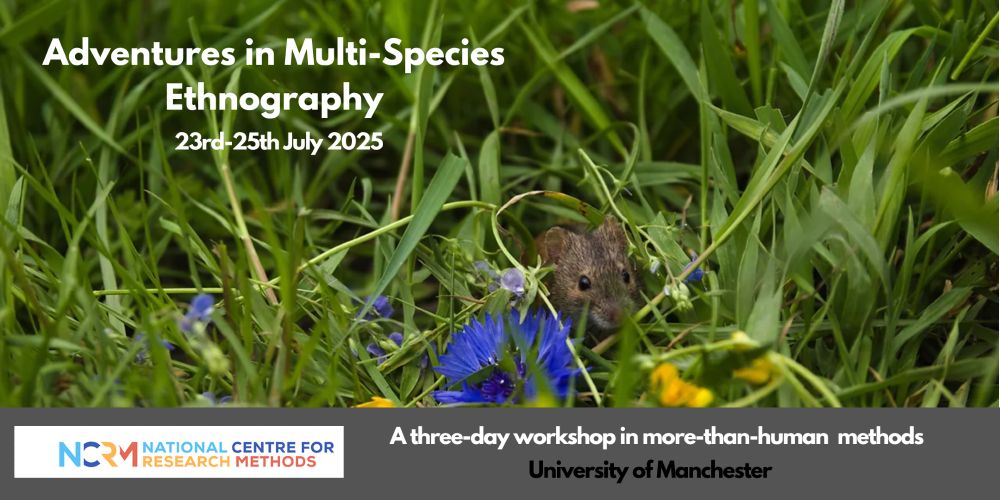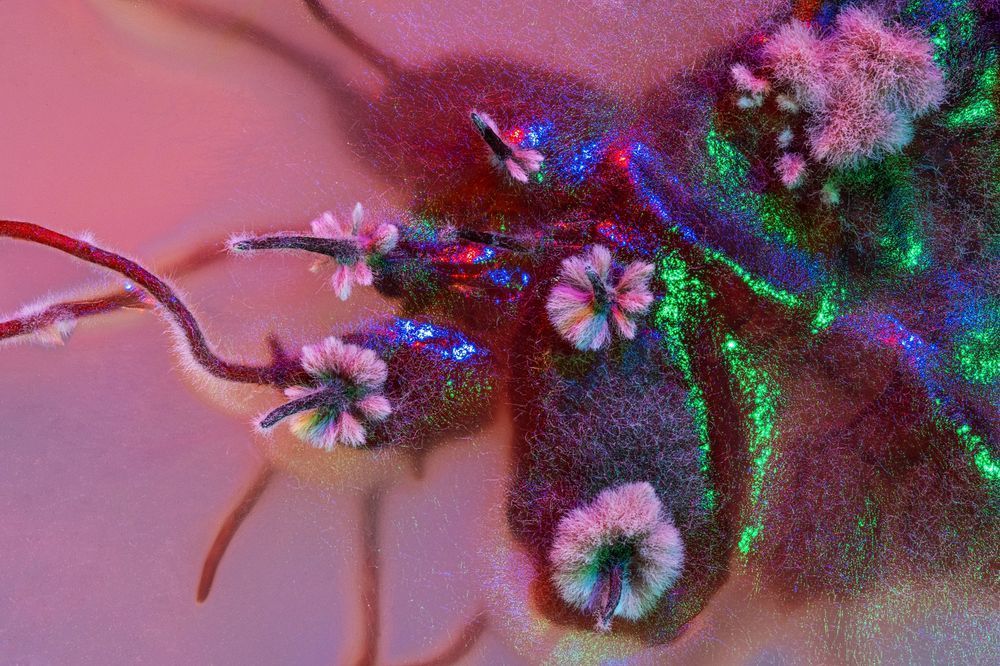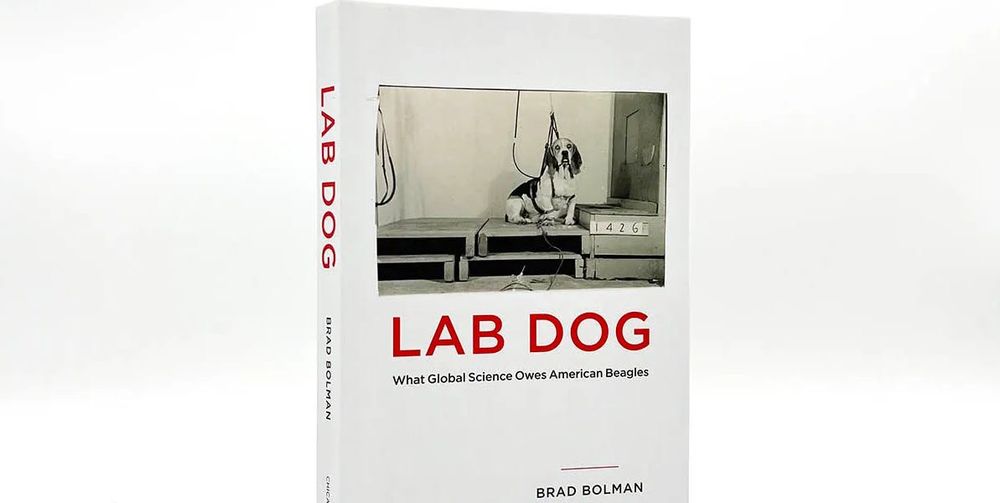This SI places plant and multispecies studies in dialogue with anthropological debates on emplacement, displacement, mobilities and migration. Highly recommend!
07.11.2025 20:00 — 👍 7 🔁 6 💬 0 📌 0

Globalizing Wildlife
Humans have always incorporated wildlife into processes of work, capture, and exchange. During the nineteenth and twentieth centuries, globalization became t...
*Globalizing Wildlife*, a book edited by @vbateman.bsky.social, Tom Quick, and myself, is now available for pre-order with @uncpress.bsky.social!
Using code 01SOCIAL30 at checkout, you can save 30%
www.uncpress.org/book/9781469...
07.11.2025 08:43 — 👍 29 🔁 15 💬 3 📌 5

Screenshot of a paper abstract in Geo: Geography and Environment by Farhana Sultana (2025) entitled: 'Repairing epistemic injustice and loss in the era of climate coloniality' with an orange banner at the top.
Climate change intensifies existing inequities, disproportionately impacting marginalised populations, particularly in the Global South and Indigenous communities. This is maintained through inequitable global climate governance, policies and solutions. The paper argues that climate coloniality, the complex entanglements of colonial legacies with contemporary climate and ecological changes, operates through systemic knowledge-based marginalisation or epistemic injustice, serving as a key mechanism in the uneven production and distribution of climate harms. Beyond the more commonly discussed material dimensions of loss and damage, epistemic injustices arise from silencing critical voices and devaluing knowledge systems. The paper extends the scope of loss and damage debates by drawing attention to epistemic losses: the erasure of worldviews, ontologies and practices that are vital for just and sustainable climate futures. It critically examines the intersections of power, pedagogy and praxis in (re)producing epistemic injustices, while simultaneously revealing counter-narratives of refusal, resurgence and relationality. By engaging Indigenous and Global South scholarship, the paper underscores the need to decolonise knowledge systems that reproduce dominant climate narratives and heed the epistemological alternatives offered by land- and kinship-based knowledge systems. Advancing climate justice depends on confronting epistemic injustice as both a form of loss and a condition of possibility: centring Global South and Indigenous perspectives is essential for cultivating pluriversal, decolonial and just climate frameworks and futures.
New in Geo:
'Repairing epistemic injustice and loss in the era of climate coloniality' by Farhana Sultana
This paper critically examines the intersections of power, pedagogy and praxis in producing inequitable climate knowledge, global governance, policies and solutions.
doi.org/10.1002/geo2...
31.10.2025 16:28 — 👍 20 🔁 12 💬 1 📌 2
"Lab Dog is a landmark study. Brad Bolman’s history of what might seem a niche subject is, in fact, an original and illuminating exploration of key aspects of the biological and biomedical sciences in the twentieth century."
Read Michael Worboys' review here: link.springer.com/article/10.1...
28.10.2025 10:20 — 👍 3 🔁 2 💬 1 📌 0

A promotional image for an edited collection called "Lands of the Lost: A Field Guide to Dinosaur Parks Physical, Fictional, and for the Future." The collection editors Dr. Victor Monnin & Dr. Alison Laurence are putting out a call for contributions. Abstracts are due January 10, 2026 to dinoparkfieldguide@gmail.com. Find the full call at: https://tinyurl.com/dinoparks
The background image is of the outdated-but-adored Iguanodon models at Crystal Palace Park.
A call for 🦕🦖🦣 contributors! With Victor Monnin, I'm editing a collection about extinct animal parks—it's a field guide, of sorts, that turns a critical eye on places real, imagined, and yet to be. Find the full CFP for LANDS OF THE LOST here: tinyurl.com/dinoparks #PaleoSky #HistSci #EnvHist #STS
13.10.2025 14:21 — 👍 19 🔁 11 💬 1 📌 0

PhD Project in Philosophy of Science: Philosophical Perspectives on Animal Models in Translational Neuroscience
3 year PhD position at U of Copenhagen for a philosophical analysis of animal models in translational neuroscience. Those with MA in HPS, philosophy, anthropology, psychology, STS, etc. are welcome to apply. Application deadline is Oct 31 #HPS #STS employment.ku.dk/phd/?show=16...
24.09.2025 20:45 — 👍 25 🔁 12 💬 2 📌 0
Research Involvement resources
The Animal Research Nexus team at the University of Exeter have developed a range of resources to help understand and support involvement with research for when conversations include animal research. ...
On my way to Oxford to chat about the new project led by Beth Greenhough and colleagues on #PPI and #AnimalResearch. Will be sharing relevant insights from our 2022 report web-archive.southampton.ac.uk/animalresear...
This fantastic summary of issues and resources was put together by Gabrielle King
23.09.2025 10:09 — 👍 4 🔁 0 💬 0 📌 0

On the left, a wine glass half full (or is it half empty) with a red liquid; on the right, a bottle half full/half empty with the same red liquid. Because let's be frank, REF2029 is driving some to drink.
Some (no doubt annoyingly) glass-half-full reflections on REF2029 pause, for academic and PS staff involved in HEI submission(s).
If, like me, you're having to deal with the hiatus in the known unknowns, what's a viable approach to take? Some very preliminary thoughts. 1/7
05.09.2025 12:44 — 👍 15 🔁 14 💬 1 📌 2
So many untold stories of women's innovation in electronic music still to be brought to light, including this key figure who developed Casio backing tracks that enabled a revolution in reggae. Great profile!
19.08.2025 02:17 — 👍 269 🔁 93 💬 4 📌 2

Convenience AI
Sabina Leonelli & Alexander Martin Mussgnug12
Abstract: This paper considers the mundane ways in which AI is being incorporated into scientific
practice today, and particularly the extent to which AI is used to automate tasks perceived to be
boring, “mere routine” and inconvenient to researchers. We label such uses as instances of
“Convenience AI” — that is situations where AI is applied with the primary intention to increase
speed and minimize human effort. We outline how attributions of convenience to AI applications
involve three key characteristics: (i) an emphasis on speed and ease of action, (ii) a comparative
element, as well as (iii) a subject-dependent and subjective quality. Using examples from medical
science and development economics, we highlight epistemic benefits, complications, and drawbacks
of Convenience AI along these three dimensions. While the pursuit of convenience through AI can
save precious time and resources as well as give rise to novel forms of inquiry, our analysis
underscores how the uncritical adoption of Convenience AI for the sake of shortcutting human labour
may also weaken the evidential foundations of science and generate inertia in how research is
planned, set-up and conducted, with potentially damaging implications for the knowledge being
produced. Critically, we argue that the consistent association of Convenience AI with the goals of
productivity, efficiency, and ease, as often promoted also by companies targeting the research market
for AI applications, can lower critical scrutiny of research processes and shift focus away from
appreciating their broader epistemic and social implications.
5. Today I read a paper by @sabinaleonelli.bsky.social and Alexander Mussgnug that I think illustrates this point perfectly.
philsci-archive.pitt.edu/24891/1/Phil...
19.08.2025 05:11 — 👍 267 🔁 50 💬 9 📌 1

My University has opened a virtual scholar scheme for scholars from Gaza. Please share widely and help stop scholasticide. www.exeter.ac.uk/faculties/ha...
03.08.2025 07:45 — 👍 138 🔁 137 💬 1 📌 5
Sorry, Richard Milne! @rjmilne.bsky.social
24.07.2025 07:26 — 👍 1 🔁 0 💬 0 📌 0
Interesting 🧐 I look forward to taking a look. I’ve been intrigued since Monty Lyman talked about hypnotism in his book the painful truth, though re IBS not pain, so maybe more relevant to some kinds of symptoms?
24.07.2025 07:14 — 👍 1 🔁 0 💬 0 📌 0
There may be a one to one relationship between these two propositions!
07.06.2025 12:12 — 👍 2 🔁 0 💬 0 📌 0
This year’s academic marking season is coming to a close. Assignments used to sing in different voices: some in clarity, originality, creativity, some chaos. Gen AI has layered on an ‘academic autotune’ removing many enjoyable aspects of engaging with authentic student work. #highered #AI #marking
07.06.2025 08:21 — 👍 28 🔁 5 💬 1 📌 1

Award details | Funding and scholarships for students | University of Exeter
PhD studentship at Geography Exeter and Penryn assessing activities, outputs, outcomes and impact of the Isles of Scilly Community Research Network (CRN). Deadline: 25 June 2025. More details: www.exeter.ac.uk/study/fundin...
07.06.2025 07:40 — 👍 2 🔁 0 💬 0 📌 0
Wonderful to spend the day with colleagues in Geography @exeter.ac.uk mapping the complex ways open science intersects with our research across the discipline. We covered experiences of preregistration, open databases, archiving, IP, legal challenges, and more, with more conversations to come 👐
05.06.2025 15:38 — 👍 0 🔁 0 💬 0 📌 0

Are you curious about expanding your social research practice to include nonhuman species, but don’t know where to start? Come and join this immersive three-day workshop at the University of Manchester, with a mix of indoor seminars and outdoor fieldwork: store.southampton.ac.uk/short-course...
05.06.2025 11:36 — 👍 23 🔁 14 💬 5 📌 2
… both can be unreliable narrators in this context
05.06.2025 06:57 — 👍 0 🔁 0 💬 0 📌 0
This is a calm, clear and thoughtful piece on experiences around #FND, simply and beautifully illustrated. Thanks to all involved.
A lot resonated, especially how hard it is to produce a meaningful account of your body when both embodied experiences and medical encounters are so fragmented
05.06.2025 06:54 — 👍 5 🔁 1 💬 1 📌 0

2025 Andrew Webster PhD Prize
We are delighted to announce that the 2025 Andrew Webster PhD Prize is awarded to: Dr. Ryan Shum (University of Exeter) for his thesis: Caring for microplastics: a multi-sited laboratory …
Absolutely stoked to share that my @renewbiodiversity.bsky.social colleague Ryan Shum has been awarded the AsSIST-UK Andrew Webster PhD prize for his work, 'Caring for microplastics: a multi-sited laboratory ethnography'! #STS #EnvHums #geography
assistuk.org/2025/06/03/2...
04.06.2025 10:20 — 👍 65 🔁 7 💬 1 📌 0

Factors Affecting Public Engagement by UK Researchers 2025
Take this survey powered by surveymonkey.com. Create your own surveys for free.
Calling all researchers and public engagement professionals: we want to find out the factors affecting public engagement in 2025, including opportunities, risks and barriers. Help shape the future of public engagement with STEM by taking our survey: www.research.net/r/RS_public_...
27.05.2025 17:30 — 👍 20 🔁 12 💬 2 📌 1

The banner’s up… the #DartmoorTorsFestival starts today! Lots to enjoy inc talks with writers, archaeologists, artists incl @lisaschneidau.bsky.social @guyshrubsole.bsky.social , @lewis-winks.bsky.social and walks shorturl.at/Oomce
23.05.2025 04:03 — 👍 10 🔁 5 💬 0 📌 0
Incredible story by prof Kevin Aho on what it's like to live with Functional Neurological Disorder (FND) in @aeon.co and the current lack of FND care.
I so appreciate how clearly Aho writes about this in a way that people can *get it.*
A landmark in the discourse
And thanks for the kind mention❤️
17.05.2025 16:55 — 👍 10 🔁 3 💬 0 📌 0
Folks, you read that right: this whole book on #GlobalHealth is available #OpenAccess! #histmed
15.05.2025 02:06 — 👍 16 🔁 12 💬 0 📌 0

From capitalist pigs to poisoned puppies
Brad Bolman on the shifting politics of animal experimentation
Today is the day! My book Lab Dog is out from @uchicagopress.bsky.social a week early and you can find it wherever you find books. For @thedrift-mag.bsky.social, I put it in context with xenotransplantation, “trans rats,” & contemporary lab animal politics newsletter.thedriftmag.com/p/from-capit...
06.05.2025 15:43 — 👍 39 🔁 12 💬 6 📌 1
Do you have a research interest in how AI can harm or benefit non-human animals? I'm recruiting a Research Officer to drive forward the "Animals and AI" priority area of The Jeremy Coller Centre for Animal Sentience at the LSE. Please apply by 6 May! 🐖🐔🐟 jobs.lse.ac.uk/Vacancies/W/...
08.04.2025 17:23 — 👍 70 🔁 44 💬 1 📌 1
Humanities, history of art, architecture & landscape; museums, libraries & collections
Researching forest governance and protected areas at TISS, Mumbai. Oxford Geography Alum.
London NERC DTP PhD student @NHM/QMUL/UCL. Aquatic botany. Biological recorder. Live on a farm. He/him.
Co-Creating Ireland's Public Involvement in Open Research Roadmap
ENGAGED is building a national roadmap to shape public involvement in open research in Ireland. We believe that research can and does play an important role in tackling societal challenges.
British-Nigerian Historian - BAFTA Winning Producer/Presenter - Best Selling Author - AGENT cwalker@unitedagents.co.uk
National Institute for Health and Care Research - we fund, enable and deliver world-leading health and social care research that improves people's health and wellbeing, and promotes economic growth.
Impact, Innovation, Investment, Inclusion
The Animal History Group (🌐 animalhistorygroup.org) is an independent international research network for students, academics and other professionals whose work engages with animals in history.
Posts currently by leafyhistory.bsky.social.
A journal for leading-edge social science research on the new genetics & related biosciences. Publishes research on social aspects of new genetics like gene editing, genomics and proteomics and biosciences like stem cell research and neuroscience
Artist - I often collaborate with scientists, especially environment/ocean/elements/time/journey/migration
Happiest as an expedition artist 😉
Canadian on my mother's side 🇨🇦
www.naomi-hart.com
We are a CIO (charity no. 1194239) with a mission to educate, motivate and empower the public to make a difference in the world.
PhD (STS). Studies non-quantifiable issues related to science, technology & society. Currently: (health) data & wastewater. Knits at conferences.
Sociologist at King's College London
Science, Technology, and Innovation Studies (STIS) at the University of Edinburgh.
https://www.sps.ed.ac.uk/science-technology-and-innovation-studies
Social science and other distractions. Old posts get deleted pretty quick.
https://kieranhealy.org /
https://theordinalsociety.com
ethnogrammatologist
https://www.dukeupress.edu/genomics-with-care
The Acquired Brain Injury (ABI) Communication Lab @sydney.edu.au
🧠 Cracking the code of communication 💬
Studying cognition and communication after brain injury, stroke & dementia | Prof. Leanne Togher & team
Distinguished Professor, CUNY Graduate Center; Director of Research, Center for Place, Culture and Politics. New book: The Story of Capital (24 February 2026). Posts from David Harvey personally are signed -DH
Professor at UCL, London; Team Lead at the Learning Planet Institute. Interested in public access, use, and creation of environmental information; citizen science, community science, scientific crowdsourcing or whatever you like to call it.
Author/sheep charmer/experimental ballroom dancer. Born: Notts. Live: Devon. Hobbies: photographing interdimensional portals, walking, swimming, saying "hello" to horses in a fake posh voice. Subscribe to my writing at https://www.tom-cox.com.
Prof of EBM @UniOxford, author, Bad Science person, more... I run http://bennett.ox.ac.uk making tools+papers from data http://OpenSAFELY.org http://OpenPrescribing.net


















